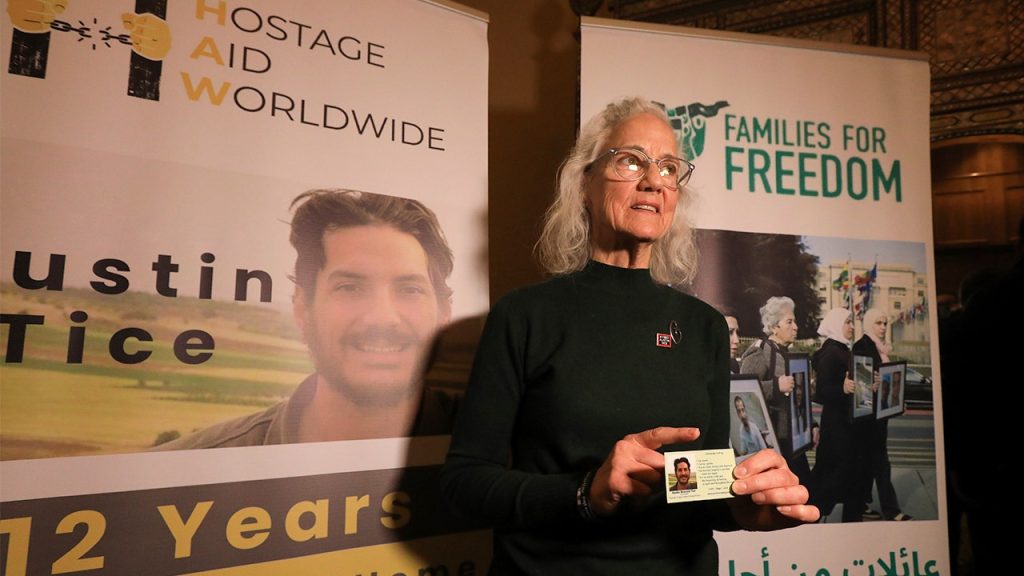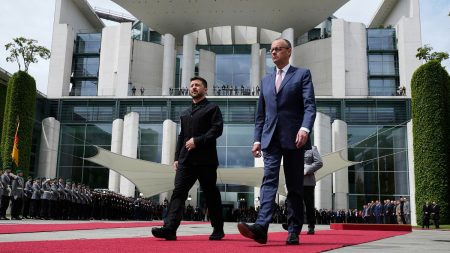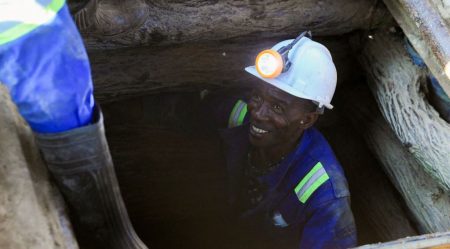Debra Tice’s unwavering quest to find her son, Austin Tice, a journalist and Marine veteran captured in Syria in 2012, has spanned over a decade and four presidential administrations. Her recent visit to Damascus, her first in over ten years, marks a pivotal moment in her tireless search. This trip, coinciding with a significant power shift within Syria, provided a unique opportunity for Debra to engage directly with the new leadership and explore previously inaccessible areas. Her journey underscores not only a mother’s enduring love and determination but also the complexities and evolving dynamics of the Syrian conflict.
The timing of Debra Tice’s visit to Damascus is crucial. It follows a revolution within Syria that has reshaped the political landscape and opened up new avenues for information and access. Her meeting with Ahmed al-Sharaa, a key figure in the new regime, represents a significant breakthrough, offering a potential channel for communication and cooperation in the search for Austin. Debra’s access to formerly off-limits prisons, facilitated by Hostage Aid Worldwide, allowed her to gain a firsthand understanding of the conditions Austin may have endured, further fueling her resolve to bring him home.
The stark reality of the prison conditions Debra witnessed served as a stark reminder of the potential hardships Austin has faced. These firsthand observations have strengthened her plea to US government officials who may not fully grasp the urgency of the situation. She challenges them to visit these sites themselves, believing that experiencing the harsh realities of these prisons would galvanize their efforts to secure Austin’s release. This direct appeal underscores her frustration with the perceived lack of progress from previous administrations and highlights her hope for more decisive action.
Debra’s renewed optimism stems partly from the change in US administration. Her interactions with the Trump administration have provided a glimmer of hope, a stark contrast to the perceived inaction of previous years. She praises their proactive approach, citing their willingness to engage with her and explore new strategies for Austin’s release. This shift in governmental approach, coupled with the evolving political situation in Syria, has created a renewed sense of possibility for a positive outcome.
Debra’s unwavering faith is a cornerstone of her resilience throughout this arduous journey. It provides her with the strength to persevere despite the setbacks and uncertainties. She openly acknowledges the crucial role faith plays in sustaining her hope and preventing her from succumbing to despair. This spiritual fortitude, combined with her maternal love, fuels her determination to continue fighting for Austin’s freedom.
While Debra Tice’s efforts have gained momentum, the search for Austin remains an ongoing process. The State Department has affirmed its commitment to finding Austin, highlighting ongoing efforts to gain access to Damascus and collaborate with international partners. However, despite extensive searches of previously hidden prisons, there has been no definitive breakthrough yet. The complexities of the Syrian situation, coupled with the lack of concrete information, continue to pose significant challenges. The involvement of external actors like Russia, with President Putin’s promise to intervene, adds another layer to the intricate web of this ongoing search. Despite the hurdles, Debra’s unwavering determination, supported by renewed hope from the change in US administration and the evolving Syrian landscape, keeps the search for Austin Tice alive.










